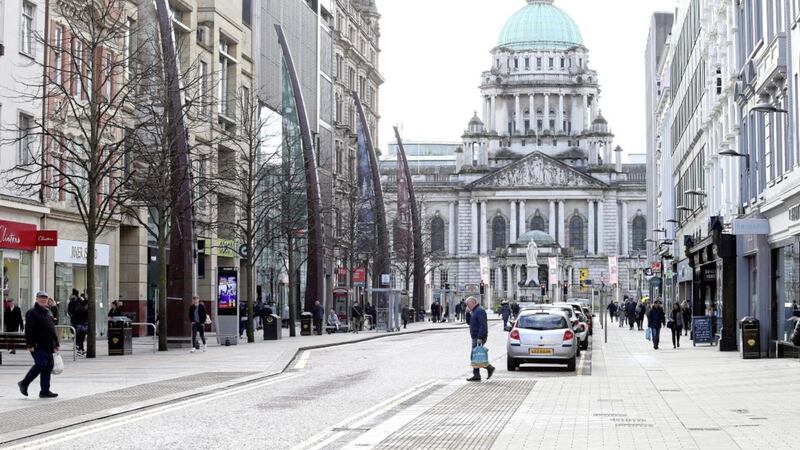Senior civil servants in the Taoiseach’s Office and other departments like finance have begun to plan a programme for economic recovery after the lockdown ends and people begin to return to work.
Is anyone doing something like that at Stormont? Has any minister instructed officials to begin that work? What do you think?
We do know that when life returns to normal, as it assuredly will, it will be a new normal. People in Britain and the Republic are going to demand more government expenditure on health and housing than has been the case in the last decade of idiotic austerity enforced by the Conservatives (supported throughout by the DUP) and by Fine Gael. They’re going to demand nationalisation of transport and an end to privatisation and the abolition of the role of the state in many other areas. It can be done pretty quickly. After all, a fortnight ago the British Chancellor nationalised the whole economy after right wing extremists, too many of them newspaper columnists like Gove and Johnson, had been wrecking it since 2010. Did you notice Rishi Sunak last week cancelled the £13.4 billion NHS artificial debt the Conservatives had confected? Just like that.
That’s all very well and great fun watching people eating their words and smelling the rubber burning as they do U-turns. However, what about the businesses pushed into bankruptcy during this lockdown? Are they going to have their debts forgiven to let them get back into operation? Remember the billions poured into the banks in 2009-10 to keep them solvent, the very bodies which caused the financial collapse? The government is going to have to bail out small businesses this time just as they did with banks a decade ago.
What about people who’ve lost their jobs or were just hoping to begin their careers? The students who normally would have been applying for jobs now as they were about to sit their finals? The Institute for Fiscal Studies reported on Monday that the worst hit in this crisis are women and young people under 25, but obviously especially women under 25. The under-25s work disproportionately in leisure, retail and hospitality, the sectors hit disproportionately by the lockdown because you can’t do that work from home. As such businesses start up again it’s unlikely they can take on the same number of employees immediately unless there’s action by the government as radical as announced in the last fortnight.
What that means is changes to the bankruptcy laws to give debtors a holiday because the government forced them to close. It also means that creditors, who lent businesses money or supplied them with goods that couldn’t be paid for, will have to be bailed out by government. In short, some way to pay them for debts that have been forgiven just like the cancelled NHS debt.
At present there is intense argument in the EU about so-called ‘Coronabonds’ to allow governments to borrow astronomical sums from the ECB to refloat their economies with the Netherlands and Germany objecting because they will have to pay most. Call them Coronabonds or something else, there will have to be something to set the EU on an even keel. Here, because of the stupidities of Brexit supported by the DUP, it will all depend on the British government alone.
Is there anyone at Stormont in the department which masterminded the RHI fiasco and now is reinvented as the Department for the Economy led by Brexiteer Diane Dodds (does she ever use notepaper headed An Roinn Geilleagair?) thinking how much money will be needed from London to get the north’s restaurants, bars, gyms, nail bars, hairdressers etc. up and running. Do you think anyone is working out what fiscal measures might be necessary to bail out creditors and save debtors from bankruptcy? Or do you think they’re all sitting waiting to do whatever somebody in London tells them to do?









